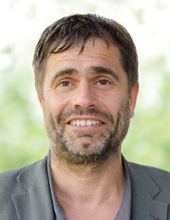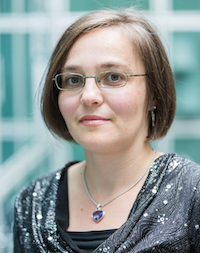Keynotes
Prof. Volker Wulf

Volker Wulf holds the Chair of Information Systems and New Media at the University of Siegen. He is also the Managing Director of the School of Media and Information (iSchool) at the University of Siegen. In addition, he heads the business field of User-oriented Software Engineering (USE) at the Fraunhofer Institute for Applied Information Technology (FhG-FIT) in Sankt Augustin. Since 2011 he has officiated as Dean of Faculty III (School of Economic Disciplines) at the University of Siegen. His research interests lie primarily in the area of IT system design in real-world contexts. This includes the development of innovative applications from the areas of cooperation systems, knowledge management and community support. One special focus lies on flexible software architecture which can be adapted by end-users. Further research focuses on methods of user-oriented software development and introduction processes. Most of Volker Wulf’s more than 250 publications have been internationally peer-reviewed. These include his publication of the books „Expertise Sharing: Beyond Knowledge Management“ and „Social Capital and Information Technology“, (MIT Press Cambridge MA) and „End User Development“(Springer Dordrecht).
Abstract
Grounded Design: Documenting and Comparing Design Case Studies
Computer applications are getting increasingly interwoven in everyday life. To build these applications, we need to take the distinct practices of their (potential) users into account. I will frame the talk by developing a practise-based perspective on the design of socially embedded technologies. Based on this perspective, I will suggest methodological and epistemological challenges. To deal with these challenges, I suggest building a collection of well documented design case studies. Conducting a design case study is a highly context specific research activity which takes three perspectives: (1) it analyzes empirically the given practices in a specific field of application, (2) it comes up with an innovative design for an ICT artifact related to the findings of the first phase, (3) it investigates into the appropriation of the technical artifact over a longer period of time. We suggest to build an increasing portefolio of design case studies and document them in richer manners than traditional academic practice would suggest. A growing corpus of design case studies will allow to compare the context-specific findings, and thus, offer the opportunity to identify cross-cutting themes. In that way we are able to build an IT-design specific terminology, and develop abstractions as elements of a theory of practice-based computing.
Dr. Claudia-Lavinia Ignat

Dr Claudia-Lavini Ignat is a research scientist at Inria Nancy-Grand Est and the vice-head of Coast team. She obtained a PhD in Computer Science from ETH Zurich, Switzerland in 2006. Her research interests are distributed collaborative systems with a focus on consistency maintenance, group awareness, security, trust issues and user studies. She is in the editorial board of Journal of CSCW and she is program committee member of several international conferences such as CSCW, GROUP, CDVE and ICEBE. She is involved in several research and industrial projects and she is the coordinator of the USCOAST associated Inria team. She is also the delegate of European affairs for Inria Nancy-Grand Est and the delegate of International Relations for Inria Nancy-Grand Est.
Abstract
From group to large scale trustworthy distributed collaborative systems
Distributed collaborative systems allow users to collaborate on a set of shared documents from any place, at any time and from any device. Examples of collaborative systems are wikis, version control systems or GoogleDrive. While 30 years ago when these collaborative systems were firstly developed they were used in scenarios involving only a small set of users such as for the writing of a research article, nowadays we notice a change in the scale from several users to a community of users. The large-scale collaboration is now possible due to advances in mobile and ubiquitous communication that enable users to be continuously connected and to the appropriation of existing tools by the users. However, existing collaborative systems face several challenges including privacy issues as personal user information is placed in the hands of large corporations and users have little control over the usage of their data, performance and coordination issues in the large-scale context. In this talk we will illustrate the evolution of collaborative systems in the past years and describe our vision of trustworthy distributed collaborative systems where communities of users can safely and confidently collaborate without the use of a central authority. We will focus on envisaged solutions for replicated data consistency, security, trust and awareness in this context. As human factor is a key issue in the design of trustworthy distributed collaborative systems, we call for the need of evaluation of these systems with user studies.
